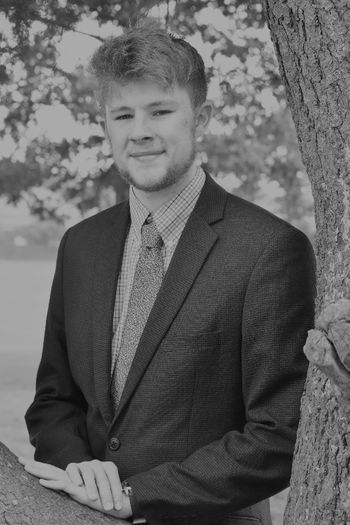Oxford Student Union hires 'sensitivity readers' to police student newspaper editors' work on 'insensitive material'
The union wants 'more qualified' readers to oversee content for editors due to there not being 'enough mechanisms for editing teams to handle sensitive pieces.'
Alumni and free speech advocates have expressed concerned over editorial independence, some fearing this trend may appear on American campuses.
Last month, the Student Union of Oxford University voted 26-5 in favor of establishing a “Student Consultancy of Sensitivity Readers” that will monitor its student newspapers.
This project comes from the union in order to address “problematic articles being published.”
The “sensitivity readers” will be elected from their societies and then be compensated for their work in reviewing content. In the proposal, the union cited “the high incidences of insensitive material” and intent to monitor articles that “could represent a certain group of people unfairly or inaccurately, be implicitly racist or sexist, or just generally inaccurate and insensitive.”
The union highlighted a January article from Cherwell, the university’s oldest student newspaper, titled “Reappraising Richard Wagner,” which was anti-Semitic in nature. Cherwell said that they “were not made aware of the article being pitched and approved,” removed the article, suspended the editors that allowed the article, and apologized for publishing it.
[RELATED: Survey: Most students favor colleges restricting speech]
“There are not enough mechanisms for editing teams to handle sensitive pieces,” the union said. “Using elected reviewers who can take pieces to people more qualified than them can help ameliorate the potential damage from content. This could add more pressure to peer-review work.”
The union indicated that their goal is to protect students and Cherwell told the Telegraph that they supported the creation of the “sensitivity readers” and cited their independence from the union, as to “not believe that there is any issue of freedom of press here.”
Some groups from the U.S., however, are sounding the alarm when it comes to this method of reviewing speech.
“Anytime a college or university--including its student government--seeks to control the content of student publications, there’s a serious risk to freedom of the press on campus,” Lindsie Rank, Program Officer of the Foundation for Individual Rights in Education, told Campus Reform. “Student media must be able to maintain editorial independence from campus authorities on all issues.”
[RELATED: Free speech for all? National trends show a one-sided story]
Rank also told Campus Reform that this style of student publication appraisal has only been seen from the U.S. once. In 2004, Kansas State University fired its student newspaper adviser after they conducted a “content analysis” of the publication and determined it didn’t include enough diversity coverage.
“The fact that we are seeing such despotic behavior come from students in the U.S. and the U.K., two countries that are supposed to exemplify freedom and democracy, should leave us seriously concerned for the future of world leadership,” Cherise Trump, Executive Director of Speech First, told Campus Reform.
The new proposal has concerned some Oxford alumni, from former BBC and Channel 4 broadcaster Michael Crick to Dr. Clay Jackson, who graduated from the Oxford Faculty of Theology and Religion.
“As an alumnus of Oxford, I find the plan to establish a censorship group deeply troubling,” Jackson told Campus Reform. “There’s a better mechanism for regulating the marketplace of ideas than a Glavlit-style group of self-appointed thought police.”
Jackson graduated in 1994 and recounted that when he attended, a spirit of debate was encouraged and anything was acceptable to say, but one had to “be prepared to defend it logically and civilly.”
“One of my fondest memories of the Oxford experience is the absolute freedom of speech that characterized academic life there while I was a student,” he said.
Crick told the Telegraph that the move was “horrific”. Rachel Johnson, a broadcaster and the sister of Prime Minister Boris Johnson, edited the student magazine Isis while at Oxford University. She added that she “felt really sad” that stories from Cherwell were including ‘trigger warnings’ at the top of pieces.
Along with this measure from the union’s meeting in May, the union renewed and discussed “Reproductive Justice Policy”, “pronoun circles,” and creating “anti-racist strategies”.
The Oxford Student Union did not respond to a request for comment from Campus Reform.
Follow the author of this article on Twitter: @TheMoserShow

